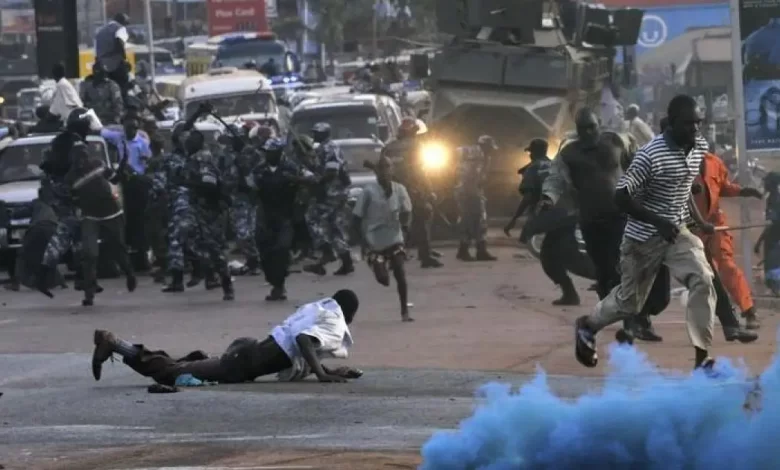Protests in Uganda: The surprising benefits for politicians
While protests in Uganda are often seen as a challenge to political authority, in Uganda, savvy politicians are finding ways to turn these movements to their advantage.

While protests in Uganda are often seen as a challenge to political authority, in Uganda, savvy politicians are finding ways to turn these movements to their advantage.
This story explores the multifaceted relationship between protests and political gain, revealing how politicians can leverage public dissent for personal and political benefits.
Protests in Uganda have been witnessed on several occasions that when they erupt, they typically highlight widespread dissatisfaction with the status quo.
Politicians, particularly those in opposition or those looking to strengthen their political base, can capitalize on this unrest. By aligning themselves with the protestors’ cause, they can position themselves as champions of the people, garnering support and increasing their political capital.
Expert speaks
To gain a deeper understanding of this phenomenon, we spoke with Dr. Stella Kigozi, a political science professor at Makerere University.
“Protests in Uganda are a double-edged sword for politicians,” Dr. Kigozi explains. “While they can pose a direct threat to the incumbent government, they also provide a platform for opposition leaders and political hopefuls to amplify their message and connect with a broader audience.”
Politicians often participate in or endorse protests to build credibility among their constituents.
By standing alongside protestors, they demonstrate their commitment to the same issues that matter to the public, such as corruption, human rights, and economic inequality.
Dr. Kigozi explains that this alignment can be particularly powerful in rallying grassroots support and establishing a politician as a relatable and trustworthy figure especially during the protests in Uganda.
“Research shows that protests attract significant media attention, both locally and internationally. Politicians who are seen supporting these movements benefit from the extensive coverage, which can enhance their visibility and public profile.” She added.
This media exposure during protests in Uganda is invaluable, especially for politicians who might otherwise struggle to gain recognition.
In some cases, protests can be used as a bargaining tool. Politicians may leverage the threat or presence of unrest to negotiate with the government for concessions, funding, or policy changes that benefit their agenda.
“The ability to mobilize protestors can serve as a demonstration of political strength and influence. For politicians embroiled in scandals or facing criticism, protests can also serve as a convenient diversion.” She explained.
By focusing public attention on the unrest and positioning themselves as advocates for the protestors’ cause, they can deflect scrutiny from their own controversies.
ICYMI: https://charmarnews.com/police-arrests-8-suspects-in-connection-to-the-planned-kampala-protests/
While protests are primarily driven by genuine public grievances, the political landscape in Uganda allows for smart politicians to derive significant benefits from these movements.
By aligning themselves with the cause, gaining media attention, and leveraging the situation to their advantage, they can enhance their political standing and influence.
As Dr. Stella Kigozi succinctly puts it, “In the complex dance of Ugandan politics, protests are both a challenge and an opportunity. The politicians who can navigate this terrain effectively are often the ones who emerge stronger.”
This story underscores the intricate dynamics at play in Uganda’s political protests, revealing how savvy politicians turn public dissent into political gain.







